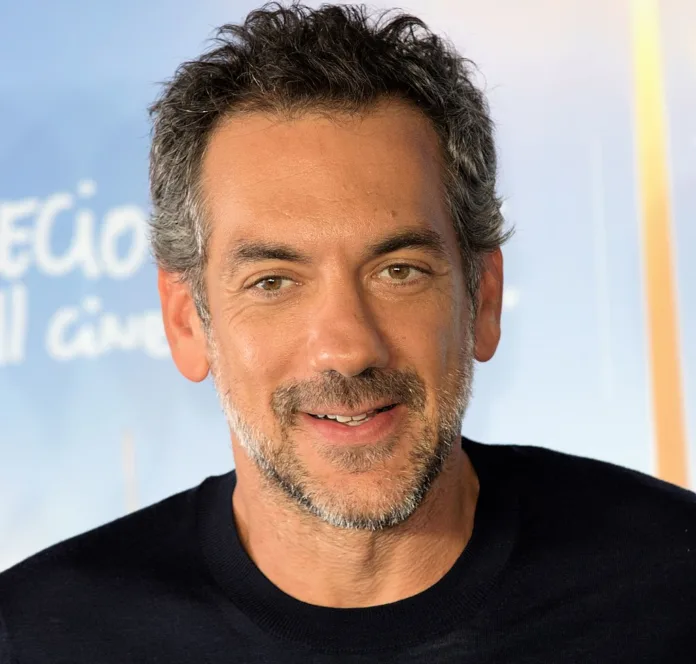Todd Phillips reveals in an interview that a third Joker film is unlikely, leaving fans disappointed as the director hints that the story may have reached its conclusion.
In a recent interview with Variety, Todd Phillips, the acclaimed director behind the Joker franchise, delivered disappointing news for fans eagerly awaiting a third instalment. While discussing the upcoming release of “Joker: Folie à Deux,” Phillips provided a glimpse into the future of the franchise, hinting that a third film might not be on the horizon.
Phillips, who worked alongside Joaquin Phoenix to bring the iconic character to life, seemed to suggest that their journey with the Joker might be coming to an end. “It was fun to play in this sort of sandbox for two movies, but I think we’ve said what we wanted to say in this world,” Phillips stated. His comments indicate that the creative team might feel that they’ve fully explored the narrative potential of this particular version of the Joker.
Embed from Getty ImagesAlthough Phillips didn’t explicitly rule out the possibility of a third film, his remarks strongly imply that both he and Phoenix are ready to move on from the character. This news comes as a disappointment to fans who had hoped to see more of this darker, grittier take on Gotham’s most infamous villain.
As the DC Universe continues to expand under the guidance of James Gunn and Matt Reeves, with their respective Batman franchises, it appears that the Joker story as told by Phillips and Phoenix may have reached its natural conclusion. The upcoming “Joker: Folie à Deux” is still set to captivate audiences, but the director’s recent comments suggest it may be the final chapter in their Joker saga.
Analysis:
Political: The potential end of Todd Phillips’ Joker series could be seen as a commentary on the changing landscape of superhero films. In an era where franchises and universes dominate the box office, Phillips’ decision to possibly close the curtain on this iteration of the Joker reflects a departure from the norm. Politically, this decision might resonate with discussions about the creative freedom directors have within the constraints of large studios and shared universes. Phillips, by potentially ending the series on his own terms, sets a precedent for directors seeking to tell more contained, standalone stories in a genre often driven by endless sequels and interconnected narratives.
Social: Socially, the Joker films have sparked significant discussions about mental health, societal breakdown, and the allure of the anti-hero. The possibility that “Joker: Folie à Deux” could be the final film in this narrative arc leaves questions about how the film will address these themes. The first Joker movie became a cultural touchstone, sparking debates about the portrayal of mental illness and violence. If this is indeed the end, it raises the question of whether the social issues the films touched upon will be resolved or left open-ended. The social impact of these films cannot be understated, and their conclusion may lead to further reflection on the role of media in addressing complex societal issues.
Racial: While the Joker films have not directly engaged with themes of race, the broader implications of the franchise’s potential conclusion could be seen through the lens of representation in Hollywood. The focus on a predominantly white, male anti-hero within the context of a larger, more diverse comic book universe might be scrutinized in discussions about who gets to tell stories in Hollywood and whose stories are being told. As the DC Universe continues to expand, there may be calls for more diverse voices and characters to take centre stage, potentially filling the void left by the Joker series.
Gender: Gender dynamics in the Joker films, particularly in the relationship between Arthur Fleck (Joaquin Phoenix) and the female characters in his life, have been a point of discussion. The potential conclusion of the series leaves the question of how “Joker: Folie à Deux” will address these dynamics, especially with the rumoured inclusion of Harley Quinn, portrayed by Lady Gaga. The portrayal of women in the Joker universe has been limited, often reflecting the darker aspects of the male protagonist’s journey. As the series potentially wraps up, it will be important to see whether it continues this trend or shifts toward a more nuanced portrayal of gender relations.
Economic: Economically, the decision to possibly end the Joker franchise after two films could have significant implications for Warner Bros. and the broader entertainment industry. The first Joker film was a massive financial success, grossing over $1 billion on a modest budget. This success often drives studios to pursue sequels, sometimes at the expense of creative integrity. Phillips’ suggestion that there might not be a third film could signal a shift away from profit-driven filmmaking toward a model that prioritizes artistic vision. However, this also means that Warner Bros. may need to rely more heavily on other DC properties to fill the gap, potentially reshaping their future film slate
